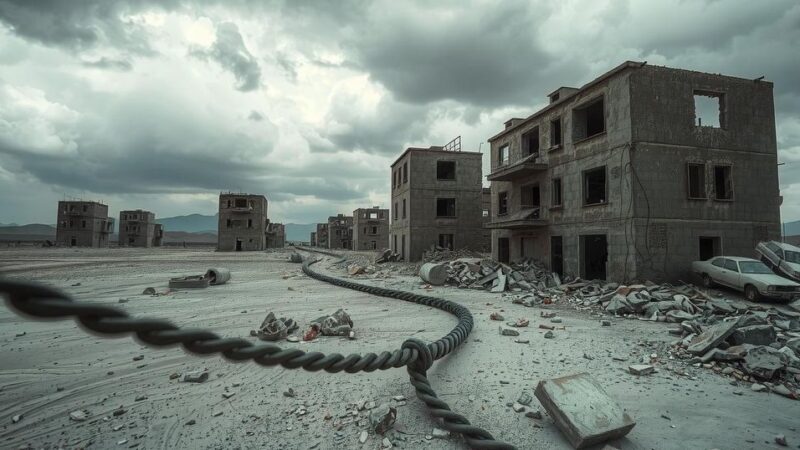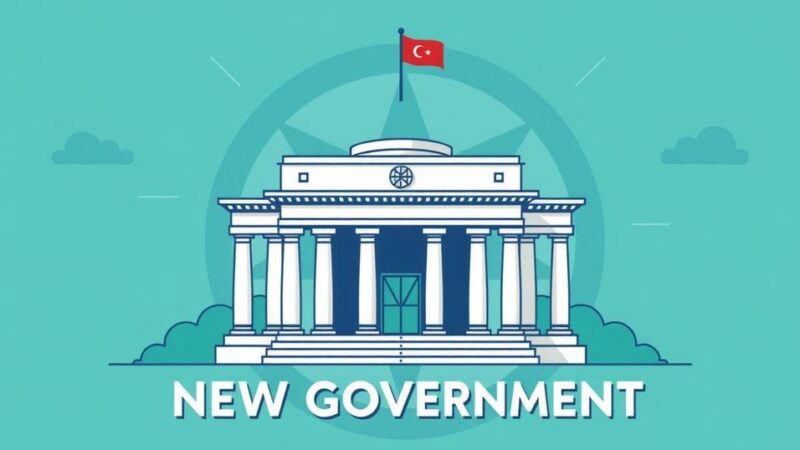South Sudan has arrested 22 political and military figures amidst rising violence and a political crisis. Human Rights Watch urges transparency, accountability, and respect for due process regarding these detentions and calls for international pressure on the government to uphold human rights.
Authorities in South Sudan have apprehended at least 22 political and military figures following violent encounters that commenced in mid-February 2025 in the Upper Nile region. This alarming surge in detentions has precipitated a significant political crisis. Human Rights Watch has highlighted concerns regarding the legitimacy and transparency of these arrests, urging authorities to disclose information regarding the detainees and ensure their rights to due process are honored.
The individuals arrested since March 4 are reportedly affiliated with First Vice President Riek Machar, the leader of the Sudan People’s Liberation Army in Opposition (SPLA-IO). The detentions coincided with clashes in Nasir, Upper Nile, where government forces confronted armed youth militias, resulting in civilian displacement. This region has long supported Machar’s opposition to President Kiir.
Human Rights Watch strongly advocates for the cessation of enforced disappearances of any detained opposition individuals since early March, demanding respect for due process rights. Among those detained, Lieutenant General Gabriel Duop Lam, the deputy chief of staff of the unified army structures, along with his bodyguards, remains unaccounted for following their arrest on March 4.
Further arrests included petroleum minister Puot Kang Chol on March 5, taken without explanation alongside several others. Initially, he was held at the NSS Riverside facility before transfer to the NSS headquarters. Additional arrests on March 6 included police officials Thomas Jal Thomas and James Duop Gatleak, who were briefly detained before release.
The escalation of violence continued in Nasir, exemplified by an attack on a UN helicopter intended to aid injured personnel, resulting in casualties among the crew and soldiers. The military has since enhanced its presence in strategic locations around the capital, Juba, while concerns regarding the safety of detained opposition members remain high.
As of March 10, families and associates of those detained reported a total of 22 individuals linked to the SPLA-IO lacking information about their status. Prominent arrests continued, with media indicating the detention of a member of parliament for Nasir county on March 11. Government representatives have not provided comments regarding these arrests but indicated a connection to unrest in Nasir and surrounding areas.
The National Security Service (NSS) operates with minimal legal oversight, leading to enforced disappearances and numerous human rights violations. Human Rights Watch has called for the government to redefine pertinent laws regarding state crimes and restrict the NSS’s authority aligned with international human rights standards.
In past instances, the government has invoked vague accusations of crimes against the state to curtail freedoms related to political expression and assembly. There is an urgent need for transparency regarding the rationale behind recent arrests, alongside judicial oversight to evaluate their legality.
Human Rights Watch urges the international community, particularly the United Nations and the African Union, to hold South Sudan authorities accountable to human rights standards, emphasizing the need to halt arbitrary detentions and ensure that security entities are not utilized for oppression.
The recent detentions of political and military personnel in South Sudan have stirred significant concerns regarding human rights and the rule of law in the country. With demands for transparency and accountability in the arrest processes, Human Rights Watch calls for urgent action to protect the rights of detainees and to ensure due process is followed. The international community’s involvement is essential in encouraging the South Sudanese authorities to uphold their legal and human rights obligations to avoid exacerbating political tensions.
Original Source: www.hrw.org






